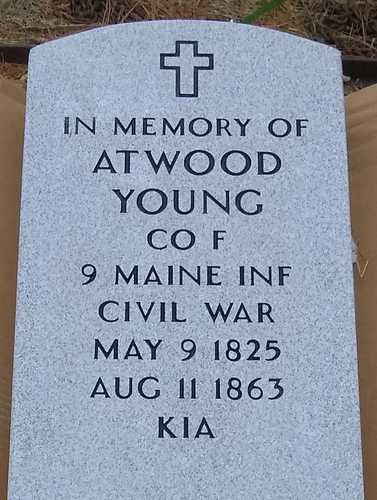Keywords: 1865
Item 1459
Rebecca Usher on Lincoln's assassination, Virginia, 1865
Contributed by: Maine Historical Society Date: 1865 Location: City Point Media: Ink on paper
Item 9200
Abner Small prison diary, 1864-1865
Contributed by: Maine Historical Society Date: 1864–1865 Location: Petersburg Media: Ink on paper
Item 116383
Cummings house, Biddeford, ca. 1900
Contributed by: Maine Historical Society Date: circa 1900 Location: Biddeford Client: A. L. T. Cummings Architect: John Calvin Stevens
Item 110003
Residence for B.M. Eastman Esq., Portland, ca. 1912
Contributed by: Maine Historical Society Date: circa 1912 Location: Portland Client: Briceno M. Eastman Architect: Frederick A. Tompson
Exhibit
In Canada During the Civil War
One surviving letter from the family of Francis Pratt to the young man who was in Canada in 1865 suggests that going to Canada to escape military service during the Civil War was not unheard of. The letter also suggests money was removed to Canada to protect it.
Exhibit
The War was not going well for the Union and in the summer of 1862, when President Lincoln called for an additional 300,000 troops, it was not a surprise to see so many men enlist in an attempt to bring proper leadership into the Army.
Site Page
John Martin: Expert Observer - 1st Maine Heavy Artillery, Bangor, 1865
"1st Maine Heavy Artillery, Bangor, 1865 Contributed by Maine Historical Society and Maine State Museum Description The 1st Maine Heavy…"
Site Page
John Martin: Expert Observer - Elmer Martin, Bangor, 1865
"Elmer Martin, Bangor, 1865 Contributed by Maine Historical Society and Maine State Museum Description John Martin (18223-1904), a Bangor…"
Story
Wabanaki Fashion
by Decontie & Brown
Keeping the spirit and memories of our ancestors alive through fashion and creativity
Story
Civil War Soldier comes home after 158 years
by Jamison McAlister
Civil War Soldier comes home after 158 years
Lesson Plan
Grade Level: 9-12
Content Area: Social Studies
Maine's quest for statehood began in the years immediately following the American Revolution. Though the state of Massachusetts consented to the separation in 1819 and Maine would ultimately achieve statehood in 1820, Maine’s split from Massachusetts was not without controversy and was not universally supported by people living in Maine. Using primary sources, students will explore the arguments for and against Maine statehood. Students will gather evidence and arguments to debate the statement: It is in the best interests of the people of Maine for Maine to become its own state.
Lesson Plan
Becoming Maine: The Votes for Statehood
Grade Level: 3-5
Content Area: Social Studies
Maine became a state in 1820 after separating from Massachusetts, but the call for statehood had begun long before the final vote. Why did it take so long? Was 1820 the right time? In this lesson, students will begin to place where Maine’s statehood fits into the broader narrative of 18th and 19th century American political history. They will have the opportunity to cast their own Missouri Compromise vote after learning about Maine’s long road to statehood.


















